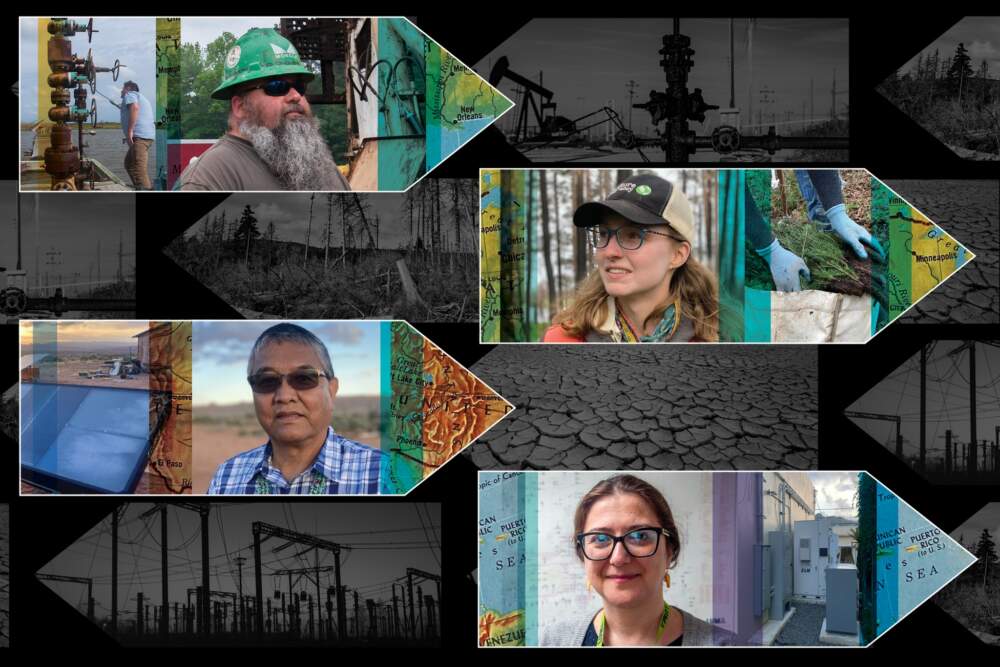Advertisement
WBUR Airwaves | Climate change: here, and now

Wildfires rage again, blotting out skylines hundreds of miles away. Heavy storms make rivers of main streets. Record temperatures kill people and wildlife who cannot seek refuge.
The effects of human-induced climate change can feel overwhelming. More than 40% of Americans believe their actions cannot affect climate change, and 13% believe it's too late to do anything to stop it, according to a national survey by researchers at Yale and George Mason universities.
It's one of the many reasons Here & Now has been putting a sharp focus on environmental coverage over the last two years, with special series, new partnerships and an environmental lens on news events such as the record summer heat and cleanup after the wildfires in Maui.
"As journalists, the one thing that we can do is help people make sense of what's happening in the world," says Carline Watson, the show's executive producer. "Even when things seem hopeless, there is always a spark of hope."
“These are stories that illustrate how we can mitigate the effects of climate change,” says Watson.
That spark was the focus of the Here & Now's series "Reverse Course." Reported by senior editor Peter O'Dowd and producer Chris Bentley, the first four stories aired in June. The journalists examined projects underway to counter the effects of climate change including providing water to desert communities in the Navajo Nation and Texas border towns. They told the stories of planting forests that are more resilient to heat in northern Minnesota. They traveled to Louisiana to cover the sealing of former oil and gas wells and to Puerto Rico to report on solar-powered microgrids.
"These are stories that illustrate how we can mitigate the effects of climate change," says Watson.
"Reverse Course" returns in December, with a focus on carbon capture projects on land and at sea. The series will run in tandem with COP28, the 28th annual United Nations Climate Change Conference taking place in Dubai. Here & Now received some funding for the project from Ceres, a Boston-based nonprofit focused on sustainability.
"What if a community or group of people said, 'Let's make a difference?'" says Catherine Welch, managing editor of planning. "We wanted the series to inspire and show there are ways to make an impact."
Beyond "Reverse Course," Here & Now regularly covers challenges created by climate change. Each week, listeners can hear in-depth reporting through a partnership with Grist, a nonprofit media organization focused on climate solutions. Earlier this year, Here & Now staff spent time in Colorado and Arizona, investigating the crisis around the Colorado River water supply, reduced by a decades-long drought. Here & Now journalists heard first hand from farmers and residents who rely on that water, about how the crisis is affecting their communities and wildlife.
It's a two-pronged approach: help the audience understand what's happening to the environment and how it's affecting people and wildlife, and help them understand what they can do about it.